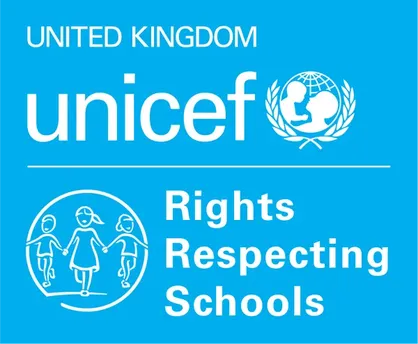Strand A: Teaching and learning about rights
Teaching and learning about rights for the whole community is a central part of the journey to becoming rights respecting.
This guidance is aimed at all schools that have registered for the Rights Respecting Schools Award.
These suggestions are all informed by accredited schools. We know that schools have different contexts, so please choose actions from the ideas below (or use your own) that will work in your context to develop the priority areas you have identified from your RAG rating.
There is no expectation that any school should do all of these activities.
- Consider whether your RRSA lead or other staff need training on children’s rights and the Rights Respecting Schools Award. We provide a range of courses to support you in your journey and can also offer support visits and training in your school. Think about how you will share training in some planned ongoing CPD time for staff to help all to learn about the CRC and rights based approach
- It’s important that members of your pupil-led Steering Group feel confident and empowered to drive RRSA forward in your school, so consider whether training for the group would be valuable
- Provide parents, carers and governors with information about the UN Convention on the Rights of the Child and why your school is involved in the Award. You can find presentations and letter templates to help you do this here
- Schools include information about their Rights Respecting work on their website, in newsletters, in letters, as well as send leaflets about the Convention to parents, carers and governors (you can purchase leaflets summarising the Convention)
- Have a “Rights Day” or a “Rights Week” as a fun way to teach and learn about rights. Involve children and young people in the planning and organisation of this day or week
- Lots of schools have a “Right of the Month” theme, planned by the Steering Group. Each month there could be: an assembly, a newsletter item, a homework task, a display, a competition, a discussion in tutor time (all run by pupils!!) relating to a specific Article. Links can be made relevant to the month, for example, Article 12 in September when the pupil council is elected
- The CRC also provides a context for other initiatives such as Eco Schools, International Award, Fairtrade Schools, Global Learning Programme. As the journey progresses, children and young people are able to understand how these programmes and initiatives all link with their work on children’s rights. For example, if children have the right to a decent standard of living (Article 27), then children can see why being a Fairtrade School is important
- Use external media resources such as First News, Newsround and Espresso to look at global issues and talk about them from the perspective of rights. For example, when looking at the war in Syria begin to look at the injustice of the situation (especially for children) and the rights not being accessed
- When we visit schools and talk to children and young people, they tell us they learn about their rights in assemblies, through displays and in their lessons. When Rights Respecting is embedded children and young people often tell us that learning about rights is part of everything they do at school and that they and their teachers talk about rights in most of their lessons
- Having a regular focus on children’s rights at assemblies provides a good opportunity to explore the Convention. Draw up an assembly plan that includes references to children’s rights. Check out our free resources that offer a number of ideas for primary and secondary assemblies, and have a look at our suggested planner for Article of the Week.
- Assemblies planned and led by children and young people can be a particularly effective way of conveying the principles of Rights Respecting
- Displays and posters about rights provide an engaging way of learning about rights for anyone who works at the school or visits the school. Monitoring displays around your school is an ideal task for the Steering Group
- Displays about curriculum themes, topics and wider information can be linked to explicit Articles where relevant. For example, a Childline poster links to Articles 12 and 19, a Water Cycle display can reference Article 24
- Identify curriculum areas where you can have a strong focus on learning about the CRC. Some curriculum areas already have clear links, for example Personal Social and Health Education or Health and Wellbeing, Religious and Moral Education, Citizenship, so you may wish to start with these
- As you progress, most curriculum areas should naturally provide rich opportunities for learning about the Convention, and there should be clear links with global citizenship and sustainable development. Meet with curriculum leads to explore and plan where links can be made throughout the curriculum. Encourage children and young people to be involved in this process too. For example in several secondary schools, young people from the steering group have worked with faculty teams
- Provide opportunities for the whole staff to share ideas and resources. It’s useful to discuss this as a whole staff to share ideas and resources. Make sure to have a summary of the CRC handy when doing this and read our tips on how to integrate rights into lesson plans
- Topics or Interdisciplinary Learning lend themselves well to learning about rights. Include students in exploring how specific topics link to children’s rights. Bringing a rights perspective to topics can enhance and enrich learning and also draw different curriculum areas together e.g. a topic on Water, the Victorians, Refugees or Climate Change
- Use resources from the World’s Largest Lesson to link rights to the global goals for sustainable development







